Tiles are so easy to clean – but no matter how sparkly they are, any surface will start to look old and tired if the grout in between the tiles is still dirty. So how do you keep grout looking as good as new? It’s easier than you think! Here are our tips on how to clean grout stains the smart way, without breaking a sweat.
Published March 4, 2019, Updated March 14, 2021
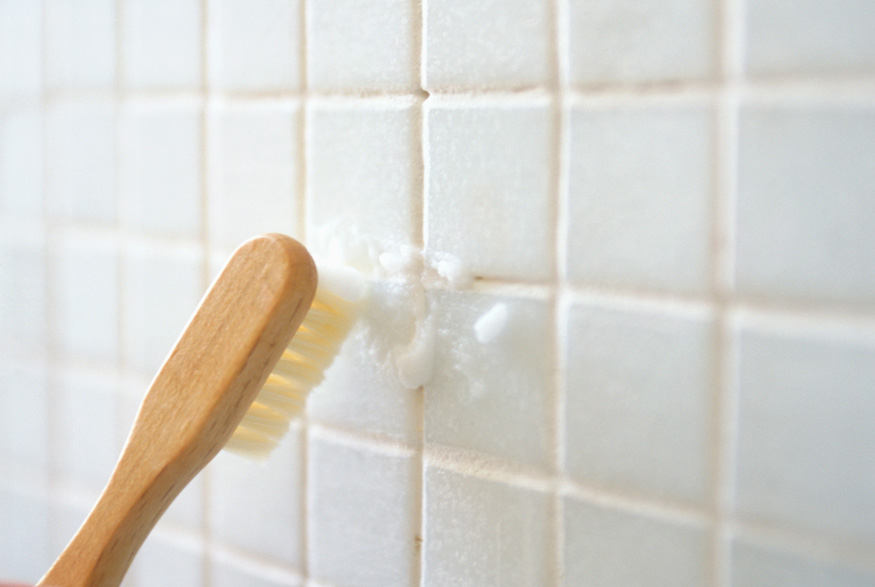
Use Baking Soda
An easy way to clean grout stains is to make a thick paste consisting of baking soda and water by simply mixing them together. It’s among the best homemade grout cleaners. Use an old toothbrush to apply this paste to the grout and gently scrub it clean.
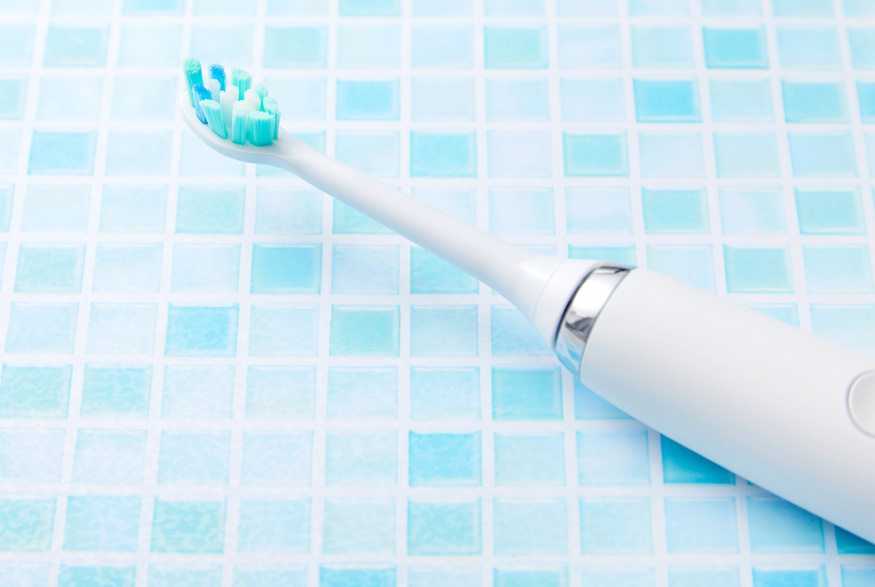
Use an Electric Toothbrush
If you don’t like the elbow grease that comes with scrubbing grout using a generic toothbrush, you can use an old electric or battery-operated toothbrush instead. Many of these come with an extra brush that you could use specifically for household cleaning. It’s like your very own tile grout cleaning machine.
Related: We Can’t Live Without These Amazing Cleaning Products
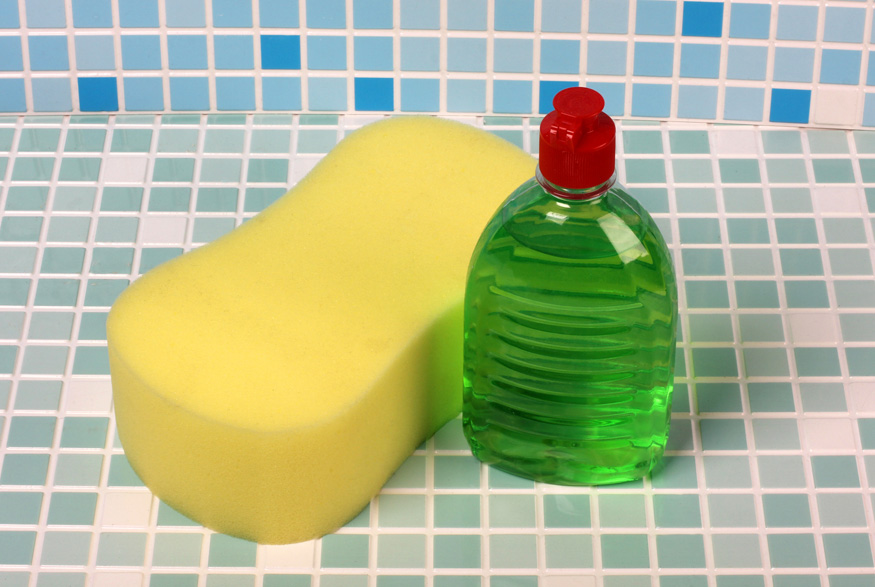
Add Hydrogen Peroxide and Dish Soap
If baking soda alone doesn’t cut it, add some hydrogen peroxide to it instead of water. The mildly abrasive properties of the baking soda helps lift dirt from the porous grout, while the hydrogen peroxide acts as a gentle, non-toxic bleach. For even more cleaning power, you can also add a dash of dish soap to the mix. A good ratio is ½ cup baking soda, ¼ cup hydrogen peroxide and one teaspoon dish soap. When you apply your mix, let it sit on the grout for about 10 minutes. This allows the mixture some time to loosen the dirt. Then gently scrub and wipe the surface clean with a damp cloth.
Related: 10 DIY, All-Natural Cleaning Products and Air Fresheners You Can Make at Home
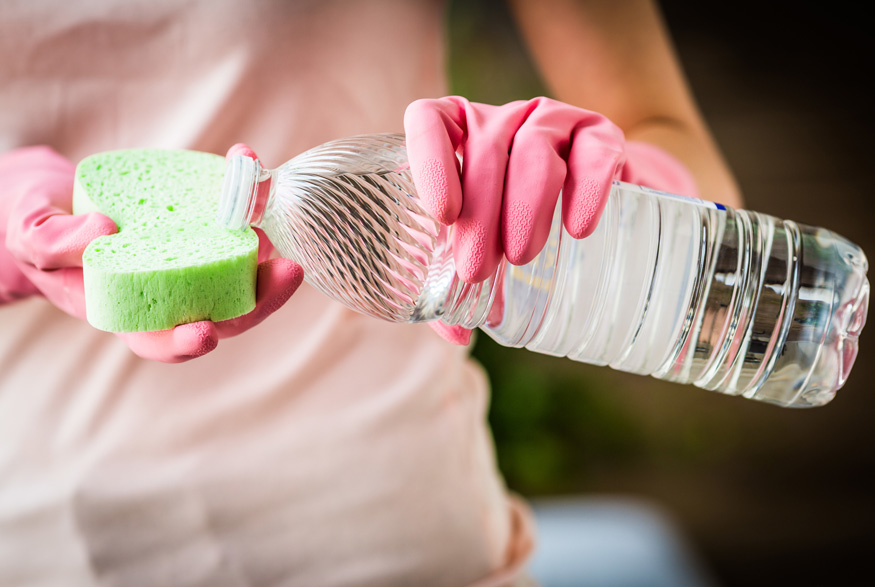
Avoid Straight Vinegar
So, how do you clean grout with vinegar and baking soda? Apparently, vinegar is a popular natural household cleaner, but it’s too acidic for cleaning grout. In fact, the acetic acid in vinegar can corrode the grout over time, so you might want to avoid using it for cleaning in this case.
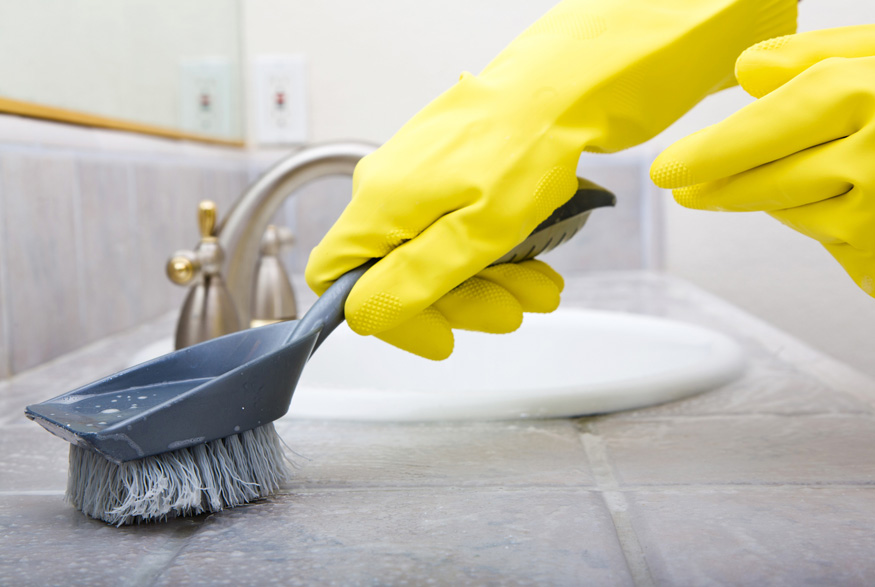
Use Boiling Water
One of the simplest ways to clean grout is with boiling water. To start, bring a kettle of water to a rolling boil. Next, pour a bit of the boiling water directly onto the grout. Use a scrubbing brush to gently scrub the grout in a circular motion. Do this in small patches at a time, so that the water doesn’t have too much time to cool. The heat will release the grime. Afterwards, you can simply use a towel to dry the excess water.
Related: 20 Fast and Easy House Cleaning Hacks Everyone Should Know
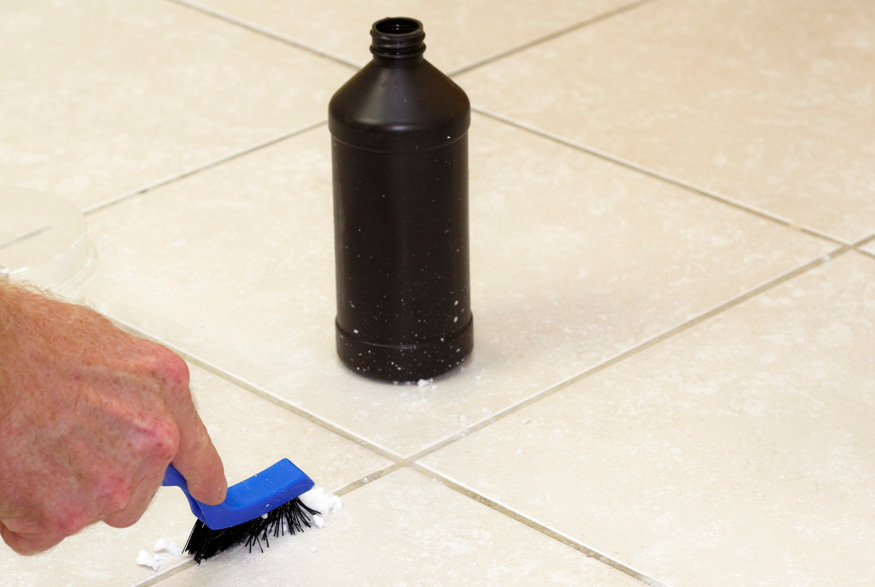
Or, Let it Sit Some More… Before Scrubbing
If the grout is very dirty and grimy, you can also let your paste sit for even longer than 10 minutes before scrubbing it off. About 15 to 20 minutes should be enough time for the hydrogen peroxide to let its brightening and whitening properties work. Then gently scrub away.
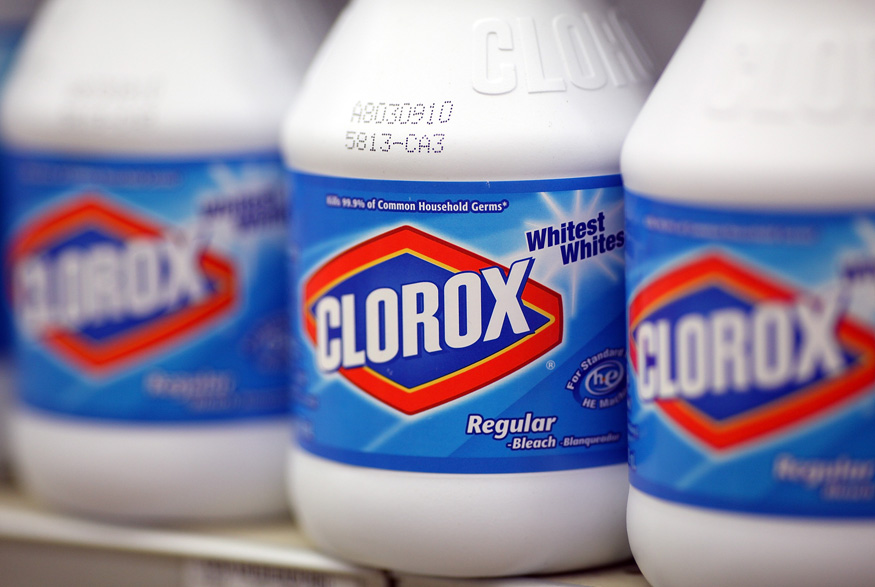
Test Bleach on Your Tiles First
Non-chlorine bleach has great disinfecting and whitening powers. However, much like straight vinegar, it might damage some tiles. Before you opt for using bleach, do a spot test first. Choose an inconspicuous place on the tiled surface, such as a bottom corner, so that if the bleach does affect the colour of your tiles, it won’t be too obvious.
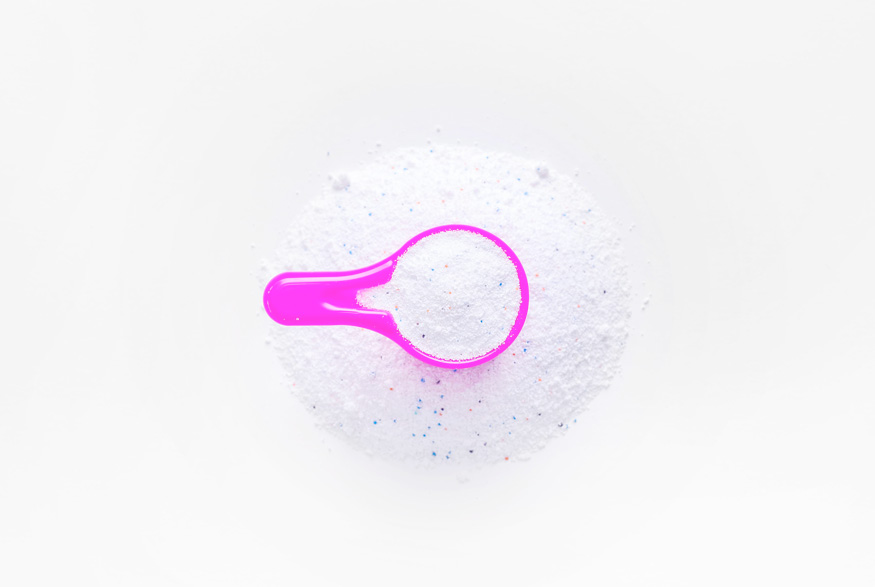
Or, Use Powdered Oxygenated Bleach
White grout can benefit from a bit of bleach to remove stains and brighten things, and powdered oxygenated bleach is gentle. Follow the manufacturer’s instructions to mix the bleach powder with water, then apply it and let it sit for 10 to 15 minutes before rinsing.
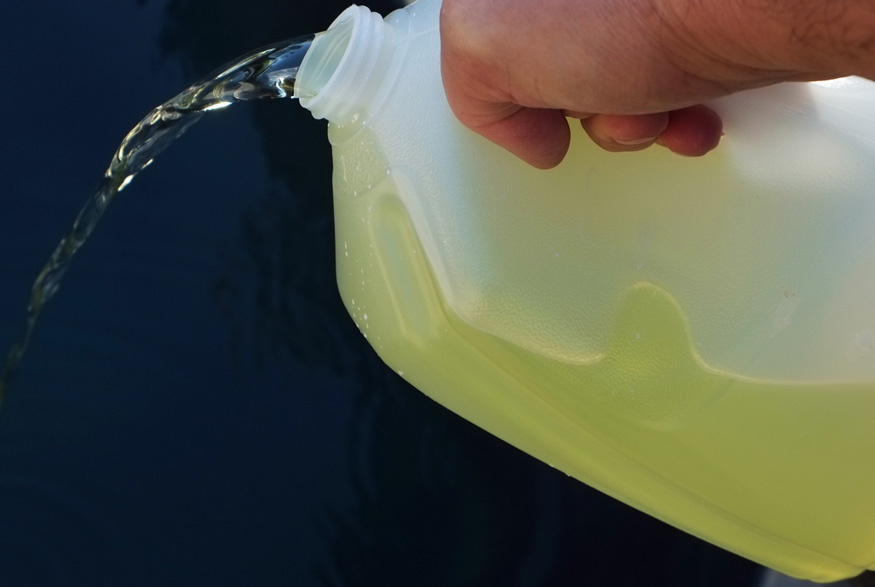
Use Chlorine Bleach, in a Pinch
Chlorine bleach has strong cleaning and disinfecting powers but it can also damage the grout – and your tiles. Because grout is porous, the bleach can even leak onto the subflooring and damage that, too. Use it as a last resort for those really stubborn stains.
Related: How to Remove the Most Common Stains Left Behind by Kids
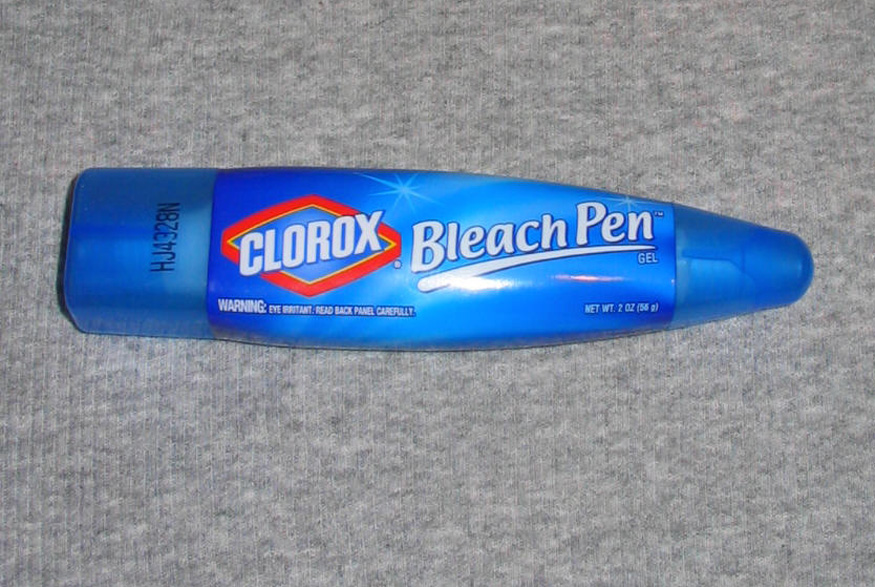
Use a Bleach Pen
If you’re worried that bleach will discolour your tiles, use a bleach pen instead. This allows you to apply the bleach with more precision so that it only gets onto the grout.
Related: 20 Time-Saving Spring Cleaning Tricks That Will Save Your Sanity
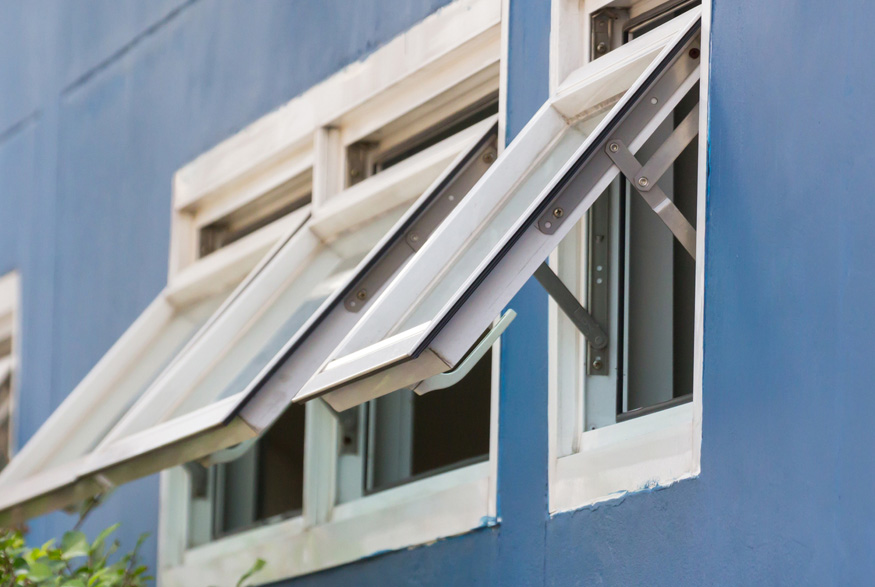
Open the Windows When Using Bleach
Bleach can release toxic fumes, so if you’re using it to clean grout, open the windows and make sure the area you’re working in is well-ventilated.
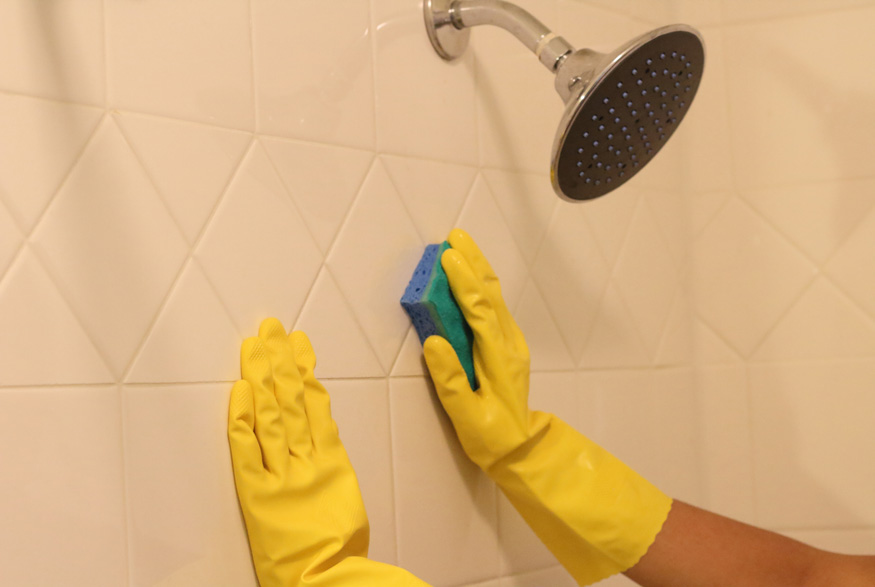
Wear Gloves
While baking soda won’t do much damage to your hands, bleach can burn your skin. If you use a grout cleaner that contains bleach, wear rubber gloves while cleaning and scrubbing. Your hands will thank you.
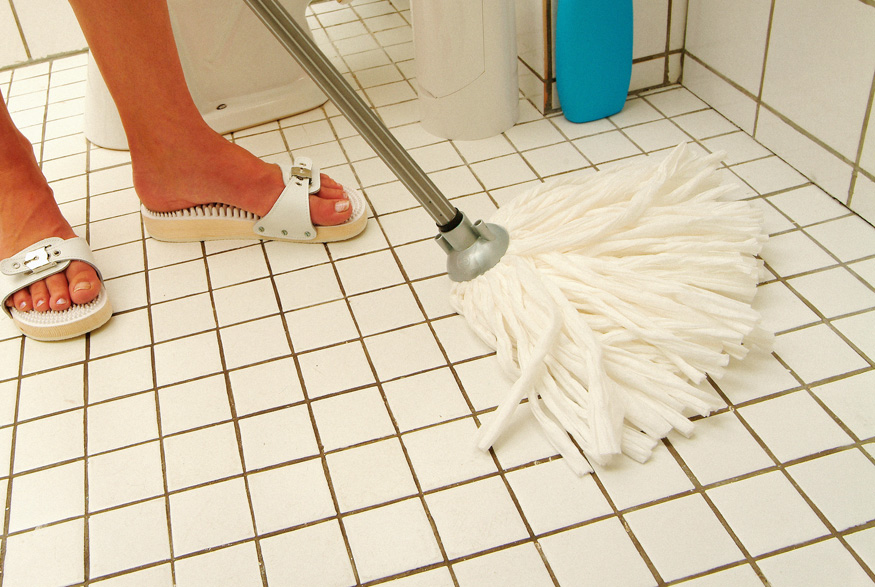
Mop the Floor
Once you’ve cleaned the grout, use a gentle floor cleaner and a mop to clean the entire surface. This will get rid of any remaining bits of dirt and grout cleaner and have your tiles sparkling like new, too.
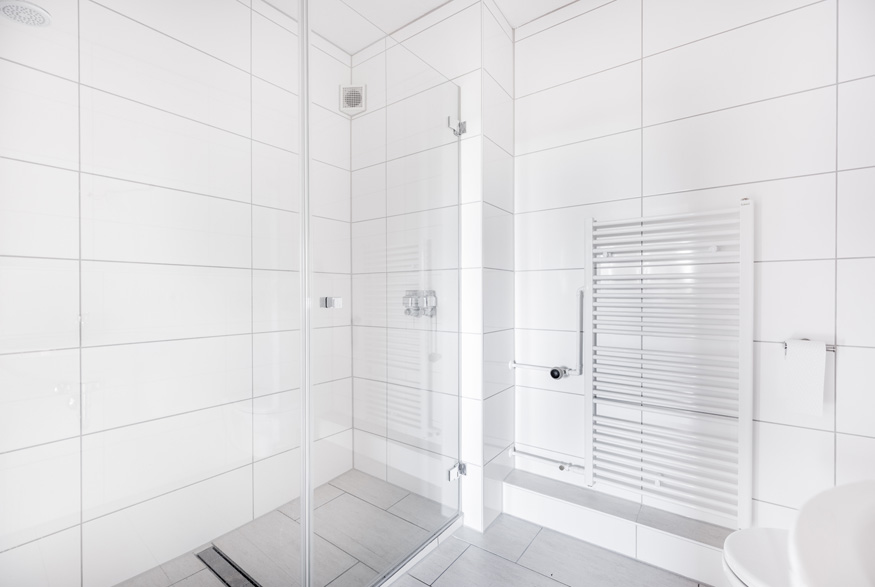
Seal the Grout
Once the grout is clean, you may want to apply a grout sealer, unless your grout is epoxy-based. This will protect the grout against future staining, so you won’t have to keep repeating the process of scrubbing. Make sure the tiles are completely dry before applying the sealant according to the manufacturer’s instructions.
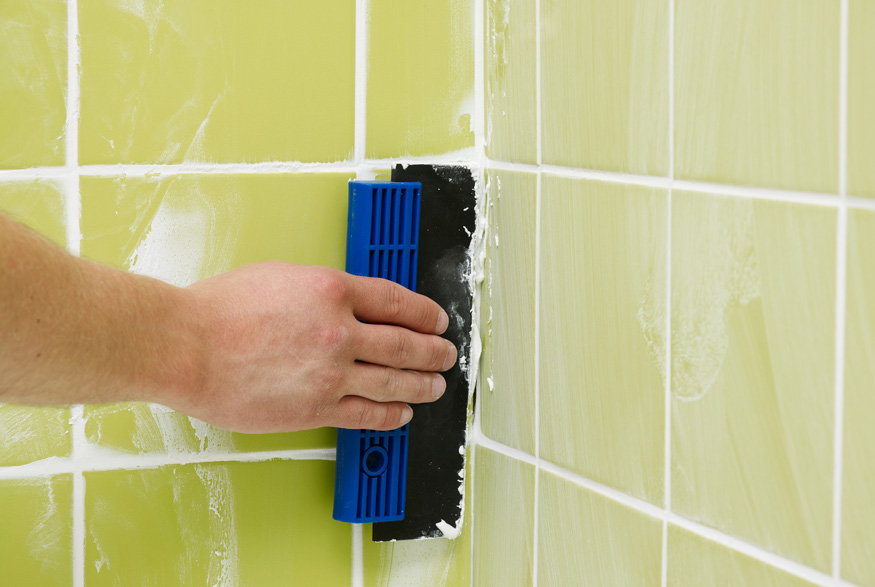
Consider an Epoxy-Based Grout for Future Tiling
If you re-tile a surface, consider using an epoxy-based grout rather than the more traditional cement grout. It’s more expensive and more difficult to apply, but it’s much more durable. It’s also nearly stain-proof so you’ll have much less cleaning to do.
Related: Unusual Tile and Grout Combos We Love in Kitchens and Bathrooms
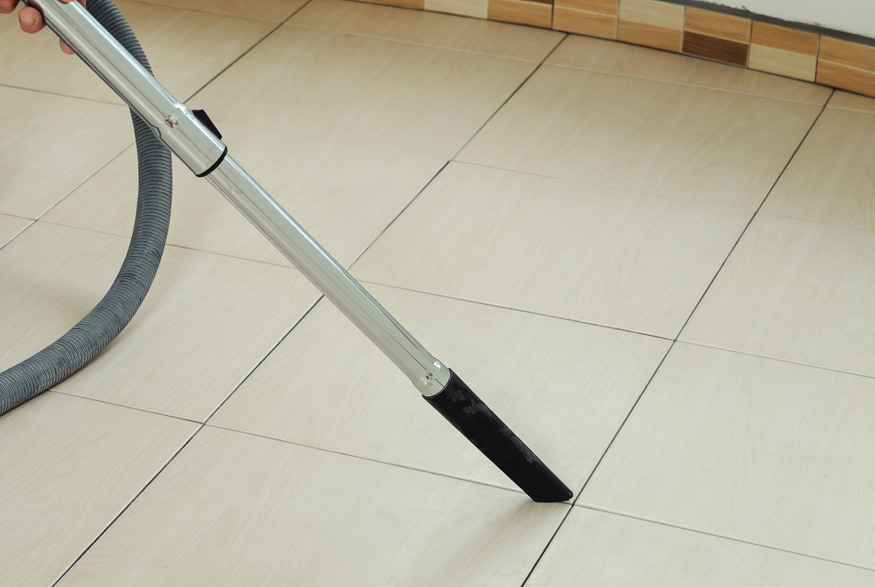
Vacuum for Prevention
One of the easiest ways to prevent grout from getting dirty in the first place is to change the way you clean your tiled surfaces. Sweeping just spreads the dirt around and allows it to get into the porous grout. Vacuuming, however, lifts and removes the dirt so that it doesn’t get to settle into the grout lines.
Related: Time-Saving Spring Cleaning Tricks That Will Save Your Sanity
Home Network your inbox.
By clicking "SIGN UP” you agree to receive emails from Home Network and accept Corus' Terms of Use and Corus' Privacy Policy.




